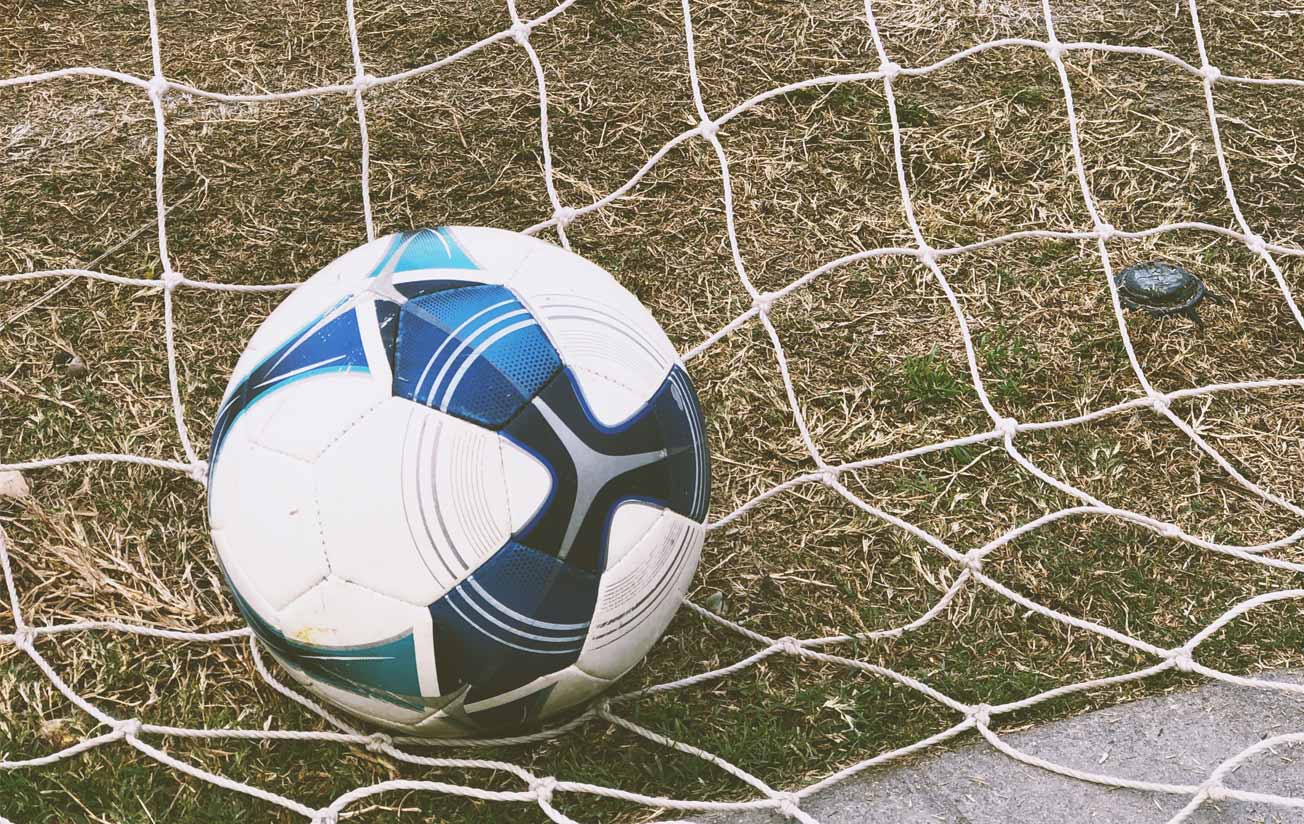Arsène Wenger spoke of the game’s “importance” to his side and of the confidence boost it will give his squad, while his players have mentioned the positivity that the FA Cup and Charity Shield wins have spread throughout the camp.
Manuel Pellegrini, however, was naturally keen to downplay the significance of the match, describing it as simply “one game more of pre-season”. It may have been a pre-season game, but surely logic dictates that there can’t be a negative side to beating a potential rival so comprehensively in a showpiece game?
Examining the seasons which followed each of the last twenty four Community (or Charity) Shields shows that on eight occasions the winners of the Shield have ended the subsequent season enjoying greater success (in terms of trophies won) than the side they defeated. These include three years (2007, 2008 and 2009) in which the Shield was won on penalties rather than in normal time. Given that league matches do not go to penalty shoot outs, these results make it difficult to maintain talk of “laying down markers” with a straight face.
Interestingly, during the same timeframe the losers of nine Shield matches have had more successful seasons than the side which beat them. Nowhere is this more emphatically illustrated than by the 1998 Charity Shield, in which league and FA Cup double winners Arsenal comfortably beat Manchester United 3-0. Admittedly United had the potential distraction of a Champions League qualifier just a few days later but regardless the result, coming just months after Arsenal’s extraordinary come-from-behind victory in the title race, seemed to suggest a permanent changing of the natural order.
Fast forward to May and Arsenal finished the season empty handed, primarily because United won practically everything in sight as they completed a memorable treble of League, FA Cup and Champions League.
Four years previously Manchester United, having completed their own league and cup double, comfortably beat the league runners up Blackburn Rovers 2-0. If ever a Charity Shield result could have been seen as “laying down a marker” it was this one, with United seemingly showing the Jack Walker-funded Blackburn that you can’t simply buy success. It would have worked too, except that nine months later Blackburn were celebrating their first league title in over 80 years while United finished the season trophyless.
Of course the Community Shield is but one game in a pre-season schedule lasting approximately six weeks. Typically, those sides with a global following begin with one or two matches against lower league opposition.
In a World Cup or European Championships year these early friendlies often see sides made up primarily of youth team and fringe players, with those players involved in the international tournaments not due to return to training until several weeks later. In theory then, it is difficult to draw any conclusions from these early matches.
Not that this stops supporters (or the media) trying. Given that the vast majority of pre-season matches are now available to watch either on television or club websites, football supporters – rarely the most patient of groups – no longer have to wait until late August before making snap judgements on their side or their new signings.
In one such match last month, a Liverpool side containing no more than two players with a chance of starting this Sunday’s opening Premiership match against Southampton conceded the first goal against Preston North End. Supporters on Twitter (always an extremely dangerous way to attempt to canvas opinion, admittedly) instantly began to speak of how Luis Suarez’s departure was obviously casting a shadow over squad morale.
Twenty minutes later Liverpool were 2-1 up in what amounted to little more than a glorified training session, and such fears were seemingly sated, with talk turning to just how much of a superstar Jordon Ibe could prove himself to be in the upcoming campaign.
Following these early workouts, sides traditionally embark on an overseas tour. Up until 2000 this usually saw English sides travel no further than Scandinavia, where they would play several matches against local sides in order to get the squad up to match fitness and integrate new players into the group.
In the incessant drive for new markets (and the cash which inevitably follows), clubs have in recent years swapped Norway and Sweden for the likes of Asia, Australasia and America.
There has also been a somewhat disturbing recent trend for English clubs to play each other in overseas pre-season tournaments. As something of a traditionalist I struggle to get my head around this development, but I suppose it does provide hitherto unavailable opportunities for all kinds of marker laying.
But do results during pre-season as a whole genuinely affect a side’s chance of success in the season which follows? Looking back to pre-season results since 1990 proves somewhat inconclusive.
Eighteen champions during this period won over half their pre-season matches, which certainly suggests that a strong pre-season tends to give a side momentum to be taken into the new season.
There are some interesting anomalies, however. Returning to 1998, Manchester United won just three of their seven pre-season matches, losing the same amount (including the aforementioned Charity Shield against Arsenal), yet subsequently enjoyed the most successful single season in English football history.
More recently, Manchester City’s pre-season results last year were particularly poor, seeing them lose four of their seven matches as the squad attempted to adjust to a new manager and several new signings. This obviously had little long term effect as City were crowned champions in thrilling style.
However, though these examples suggest that it is certainly possible to recover from a poor pre-season, it is worth noting that both sides did indeed suffer from a slow start to the league season. Manchester United picked up eight points from their first five matches (including another 3-0 reverse to Arsenal) while Manchester City lost two of their first three away matches.
So a case can be made for a poor pre-season having an effect on the early weeks of the season, yet little on the season as a whole.
Occasionally though, the negative effects of a sluggish start can prove more permanent. After a pre-season in which they won just two of their seven friendlies (one of which was the Community Shield), David Moyes’s ill-fated spell in charge of Manchester United continued on a similar path with just seven points gained from their first six matches.
Had pre-season been smoother and results more positive, could his tenure have turned out differently? Would squad morale have been improved, and the players more receptive to the new manager’s methods, leading to better results in the long-term?
The obvious contrast to Manchester United last season is Liverpool. Having finished 7th in 2012-13, the squad was nonetheless settled, having enjoyed a significant upturn in form in the final months of the season, and become used to Brendan Rodgers’s methods. They won six of their seven pre-season matches in 2013 and subsequently won their first three league matches for the first time since 1994.
So what does all this mean for the upcoming season? As at 12th August, Manchester United (who still have a match to play) and Tottenham Hotspur are the only unbeaten sides this summer among those that finished in the top seven in the league last season. This is all the more impressive given that both clubs have new managers with markedly different methods to their predecessors.
Liverpool, Manchester City, Chelsea and Arsenal meanwhile have all won over half their matches. Only Everton have had a noticeably poor set of summer results; they are without a victory in their five friendlies.
Aside from results, pre-season often sees a race to cast judgements on individual players, from which signings look most likely to make a positive impression to which players look likely to have improved seasons. Erik Lamela, Stevan Jovetic and Dejan Lovren are among those seemingly set to have outstanding campaigns.
Unfortunately, history is littered with countless examples of players looking like world beaters throughout pre-season only to disappoint when the competitive action starts. Countless examples, but only one which really needs mentioning: Bruno Cheyrou.
Upon securing the midfielder’s signature in the summer of 2002, then-Liverpool manager Gerard Houllier sought to downplay expectations and take the pressure off Cheyrou, comparing him to Zinedine Zidane.
Cheyrou’s first home appearance came in a friendly against Lazio. He ran the game, looking effortlessly creative against high-level opposition. Many in attendance believed they had seen their next idol in action. Bruno Cheyrou played thirty one matches for Liverpool over a four year period. He wasn’t actually all that similar to Zinedine Zidane.
Of course, none of this is to suggest that supporters shouldn’t get excited by new signings, or that they shouldn’t be full of hope gained from how well their manager appears to be getting his ideas across.
After all, historical precedent suggests that Arsenal are likely to start the season better than Manchester City, and that Spurs and Manchester United will maintain their positive momentum into the start of the season; it’s just difficult to gauge how much of an effect these starts will have on the season as a whole.
Worryingly for Everton fans, precedent also suggests that it often takes some time for a side having had a poor pre-season to shake themselves out of it. Even here though, it is worth mentioning a relatively recent example of a side bucking this trend quite spectacularly.
In 2003, Arsenal won just four of their ten pre-season matches, suffering two defeats (including a Community Shield defeat on penalties to Manchester United). They subsequently won their first four league matches and rather more notably went the entire league season undefeated.
So essentially, whatever kind of pre-season your side has, it is possible to find positives. Friendlies are just that. It is better to win them, but it is certainly possible to recover if you don’t. Unless, of course, Mauricio Pochettino mentions Erik Lamela in the same sentence as Diego Maradona, at which point Spurs supporters would be entirely justified in descending into instant mass panic.
I’m available for all types of writing work, wherever you are in the world. You can view examples of my copywriting and features, and you can also find out more about me here and on the homepage. Want to cut to the chase? You can contact me here or at the bottom of this page. I can also be found lurking on Twitter and LinkedIn.

